6 Types of Sushi: Your Guide for 2026

There are many types of sushi to explore when enjoying this beautiful and technical staple of Japanese cuisine. Can you recognize the six basic types of sushi? Knowing how to distinguish different types of sushi can help you interpret the menu at your favorite sushi restaurant or give you a starting point as you learn how to make your own sushi at home.
What makes sushi sushi? At its base, sushi consists of vinegared rice and a topping or filling, usually raw seafood or vegetables. Because of its simplicity, sushi becomes a blank canvas for creating artistic culinary delights with fresh and colorful ingredients from salmon or octopus to avocado or cucumber.
Sushi is unique in that it is easy enough for beginners to make with enough technical intricacies for top sushi chefs to study for years in order to master the art. Here are six types of sushi to get to know in 2022.
Jump to Section
6 Types of Sushi
You might be familiar with some of these popular types of sushi, but what are the differences between sashimi vs sushi, nigiri vs sushi or maki vs. sushi? Although you probably recognize some of these common terms from a sushi menu, do you know what makes each of these types of sushi unique?
Professional sushi chefs train for years to master the fine details of the different types of sushi, but you can practice making sushi in your own kitchen as long as you know the basics and have a few helpful pieces of equipment.
Online sushi making classes are a great way to learn from talented chefs that can teach you the foundational techniques for all types of sushi. Once you have the knowledge, you will need a few kitchen tools to help you prepare your sushi. The Global Grub DIY Sushi Kit is one of the best sushi making kits on the market. It has everything you need to get started making your own colorful and delicious sushi including a bamboo rolling mat, pantry ingredients such as rice and nori, and cooking instructions and recommendations.
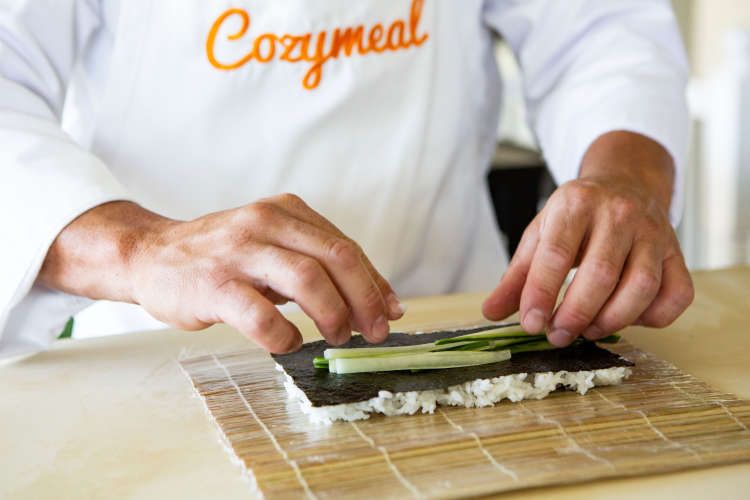
What Is Sashimi?
Although not technically sushi due to the absence of rice, sashimi is an important element of many sushi dishes. Sashimi is thinly sliced seafood, most often served raw (although it can sometimes be cooked as is typically the case with shrimp or eel). Often served with very little accompaniments, sashimi is meant to highlight the flavors and textures of the fish. Popular sashimi offerings include tuna, salmon, yellowtail, sea urchin and octopus.
One of the accompaniments you are likely to see with sashimi as well as other types of sushi is wasabi. Made with Japanese horseradish, wasabi is a pungent ingredient that is meant to be mixed with soy sauce to complement the flavors of the seafood. Pickled ginger is also commonly seen alongside many types of sushi and is used as a palate cleanser between courses.
Like many other Japanese dishes, sashimi and sushi are typically eaten either with your hands or with chopsticks. For an authentic experience at home, consider adding some reusable chopsticks to your utensil drawer. Helen’s Asian Kitchen Chopsticks come in a set of five and are a beautiful and sustainable supplement to your dining collection.
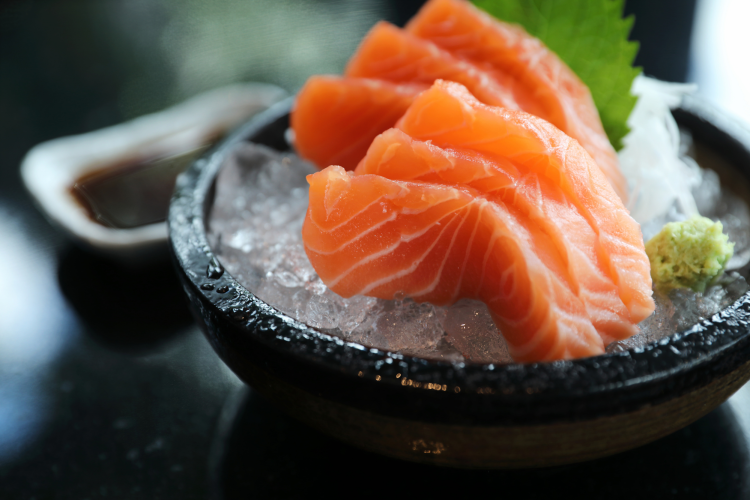
What Is Nigiri?
Nigiri consists of just two ingredients: fish and rice. This type of sushi combines a shaped pillow of vinegared rice (sushi rice) with a topping of raw seafood. Nigiri is the bridge between sashimi and what Westerners typically think of as sushi (maki roll).
Rice is considered the most important element of sushi. The signature sticky rice is made with Japanese short-grain rice which is seasoned with a mixture of rice vinegar, salt, sugar and sometimes kombu (kelp). This combination gives the rice its distinct texture and flavor.

What Is Chirashi?
Chirashi means “scattered” and is similar to what you might think of as a poke bowl. This type of sushi is not as well known in the West and features a bed of sushi rice with toppings scattered over the rice. This is where the dish gets its name, although the actual preparation of chirashi is not so haphazard.
Chirashi toppings include sashimi, vegetables, fruits and garnishes thoughtfully and aesthetically arranged in the bowl for a colorful and highly decorative finished dish.
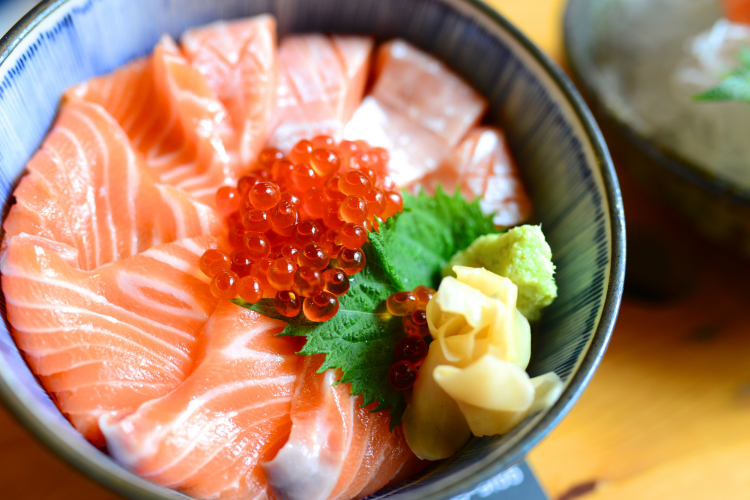
What Is Maki?
What is maki sushi, exactly? In Japanese, maki means “to roll” and maki sushi is the most common version of what Westerners think of as a sushi roll. This type of sushi is made by spreading a layer of sushi rice and fillings over a sheet of dried seaweed (nori) before rolling the ingredients firmly into a thin tube and slicing it into bite-sized pieces. Maki fillings typically include seafood and sliced vegetables.
When preparing maki, sushi chefs have a few helpful tools they use to make the signature tight rolls. The chef might use a bamboo spoon to help scoop and spread the rice before finishing the layers by hand. A bamboo mat or curtain helps the chef shape the maki and achieve the tight roll. These tools are also helpful for making other types of sushi such as uramaki and can be found in convenient kits like the AYA Eco Sushi Making Kit which includes two bamboo mats, a bamboo spoon and knife, and five sets of reusable chopsticks.
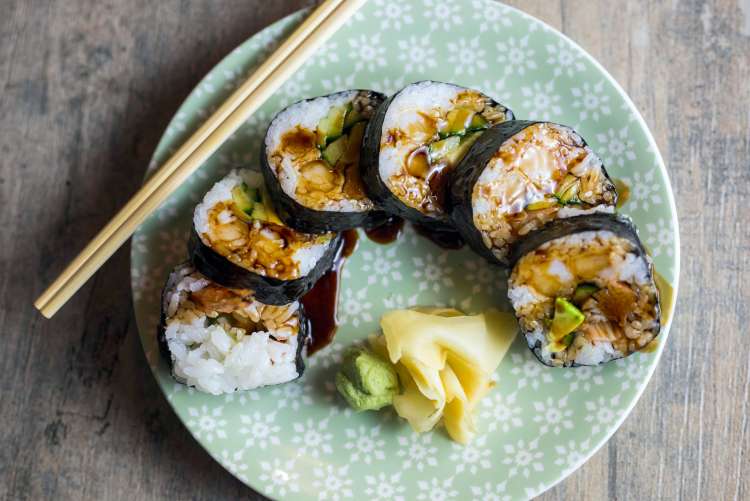
What Is Uramaki?
Uramaki is very similar to maki sushi, except it is inside out. In this type of sushi roll, the rice is on the outside of the nori rather than inside of the seaweed wrapper. Uramaki is sometimes rolled in sesame seeds and is often served with lots of sauces and toppings. A popular example of uramaki seen on Western sushi menus is the California roll which is typically filled with real or imitation crab, avocado and cucumber.
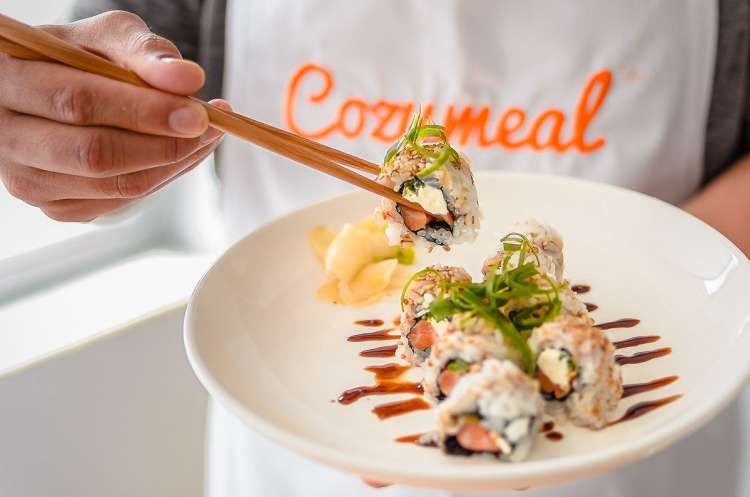
What Is Temaki?
Temaki is a unique type of sushi thanks to its unusual shape. Also known as a hand roll, temaki is made by rolling the nori into a cone shape then filling it with rice, seafood and vegetables. The making of temaki is often less precise than other types of sushi and is meant to be an individual, handheld serving rather than shared.
An unusual hybrid food item that is gaining popularity around the country, the sushi burrito, draws inspiration from temaki. This fusion of temaki sushi and Mexican burritos is much larger than traditional temaki and is stuffed with a variety of classic sushi-style fillings and ingredients before being rolled burrito-style rather than in the signature cone shape.

Making Your Own Sushi
Now that you can identify some basic types of sushi, it is time to practice making your own sushi creations! To master the art of sushi making, you will want to make sure to practice the basics, get creative and share your skills with your family and friends.
Practice the Basics
Because sushi consists of just a few simple elements, it is important to master the basics as you build your sushi. The most crucial element to master first is preparing your sticky sushi rice. Not just any rice will work for sushi, so make sure you are using the correct type of rice and seasoning it well with the classic rice vinegar, salt and sugar mixture.
Making different types of sushi is also an excellent opportunity to practice your knife cuts as you meticulously prepare your seafood and vegetables to top or fill your sushi. Finally, you will want to practice the technique of forming and rolling your maki or uramaki sushi with your bamboo mat. Be careful not to overfill your sushi so the rice and fillings don’t spill out when you attempt to make your rolls.

Get Creative
Sushi can be as simple or elaborate as you want with endless possibilities of toppings and fillings. If you've ever asked yourself, "is sushi healthy?", the answer depends on your choice of ingredients, but let your creativity shine with unique combinations as you experiment with different types of sushi.
Popular options to consider include everything from shrimp, egg or tofu to salmon, daikon radish or fish roe. Play with textures from soft to crunchy and flavors from spicy to sweet as you compose your own signature rolls or other types of sushi. You can even get creative with the shapes of your sushi with fun sets such as Helen’s Asian Sushi Making Kit. This kit includes molds for making different shapes and sizes of sushi rolls from small to large and square to heart-shaped.
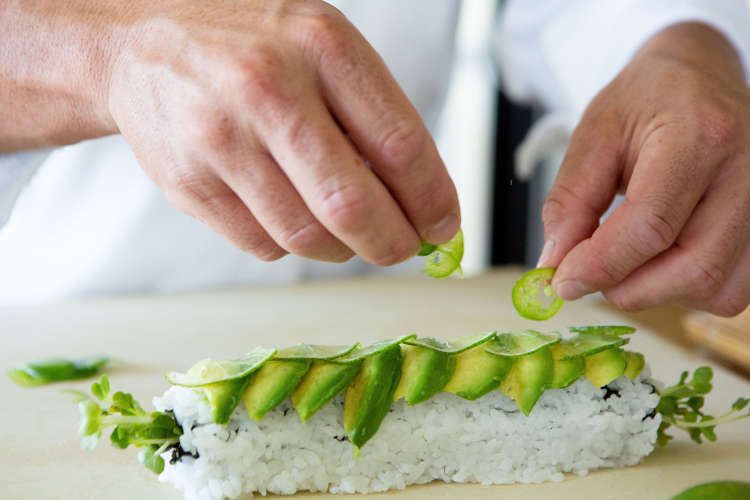
Have a Sushi Party
Show off your sushi skills to your friends and family or learn to make all types of sushi together with a sushi party! Invite your guests to build unique rolls with their favorite ingredients so you can share and taste everyone’s personalized creations.
Whether it is family sushi night or a dinner party with friends, the AYA Sushi Lovers Set is ideal for making and serving sushi at home with essential sushi making tools and restaurant-style serving dishes. For large sushi gatherings, check out the AYA Bazooka Sushi Making Kit which, in addition to the classic sushi equipment, features a nigiri maker and bazooka, a special tool for quickly and easily crafting homemade sushi rolls.
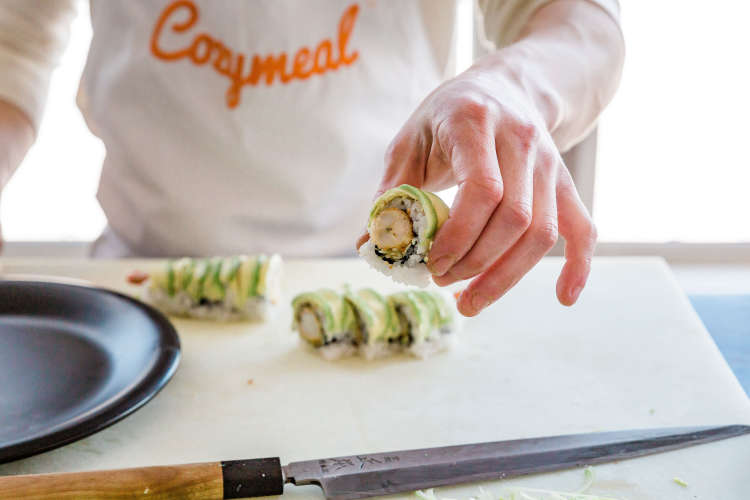
Now that you are familiar with some of the most popular types of sushi, you can order like a pro at your favorite Japanese restaurant and let your creativity shine as you practice the art of making different types of sushi at home. With some basic knowledge, a few helpful tools and a dose of inspiration, the possibilities for making your own colorful and delicious sushi creations are practically endless.
For even more ways to elevate your kitchen, check out chef-recommended cookware in the Cozymeal Shop.

